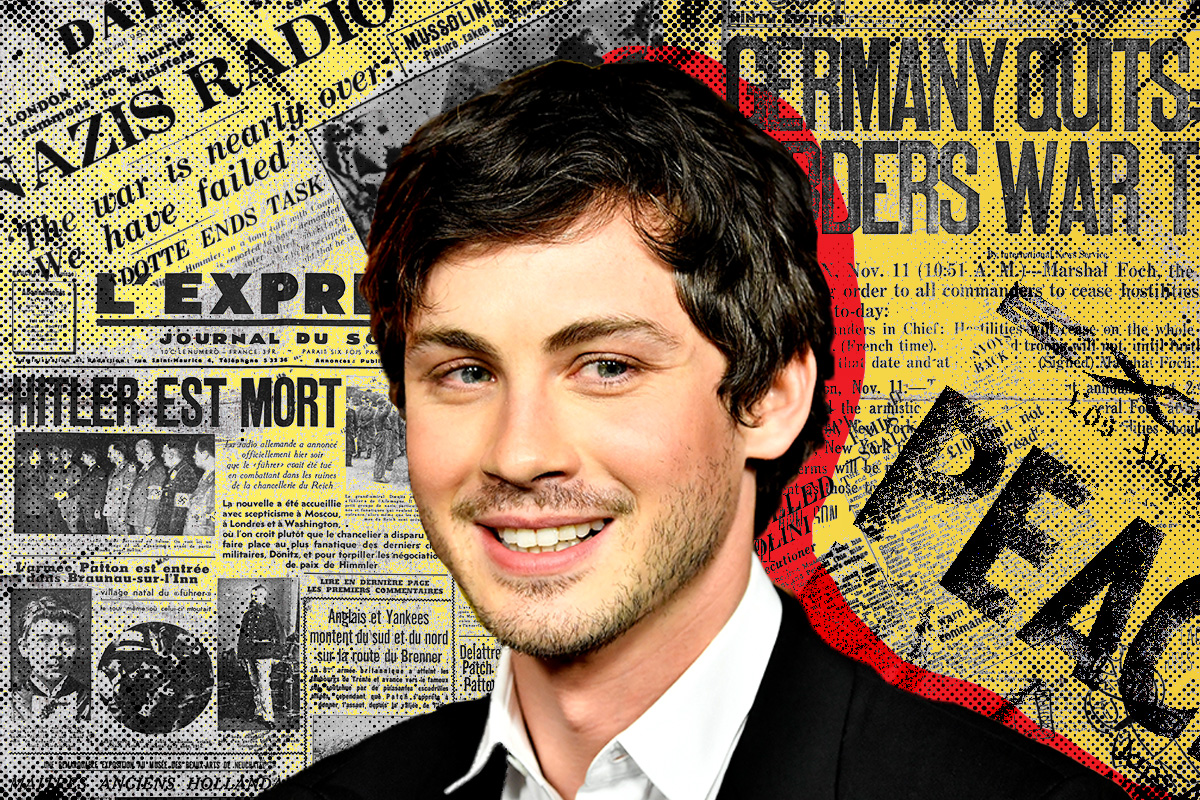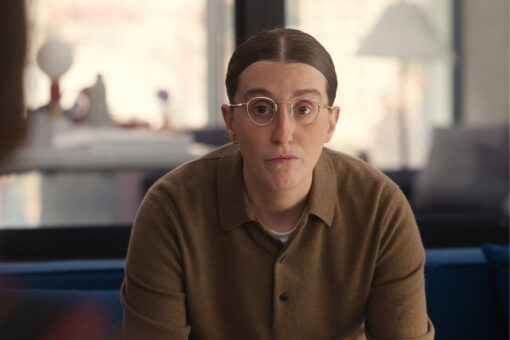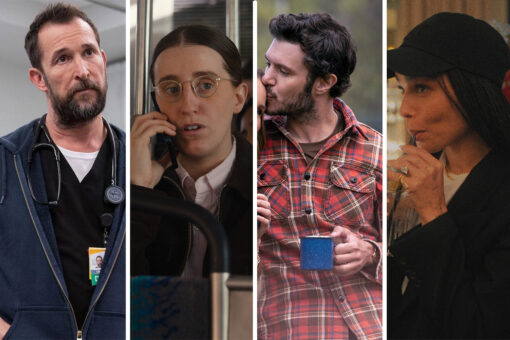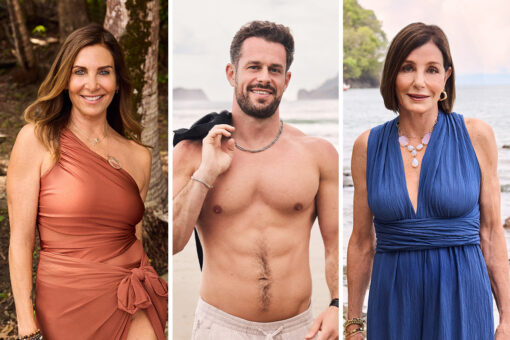Warning: Light spoilers ahead for “Hunters.”
10 years ago, Jewish actor Logan Lerman was perhaps the premier Hollywood teen heartthrob — and it’s certainly not hard to see why. By 2013, Lerman had brought boyish charm and thoughtful acting chops to roles like YA hero Percy Jackson and the painfully shy and troubled Charlie Kelmeckis in “The Perks of Being a Wallflower.” Logging on to Tumblr or YouTube during that period, it was almost impossible to avoid fan edits and artwork of Lerman as Percy and Charlie, featuring Lerman’s most popular lines: “Son of Poseidon,” “We accept the love we think we deserve,” “We are infinite.”
These days, however, Lerman, now in his 30s, has taken on grittier roles … like, much, much grittier. Like blood-spurting, Nazi-killing levels of gritty.
I am, of course, talking about Prime Video’s drama conspiracy show “Hunters.” In the first season, viewers are transported back to 1970s New York to meet Jewish mathematics wiz Jonah Heidelbaum (Lerman), who joins a group of Nazi hunters after the murder of his grandmother. Throughout 10 episodes, Jonah, under the leadership of Holocaust survivor Meyer Offerman (Al Pacino), must reckon with the morality of killing Nazis, all while working to stop Nazi agents from creating a Fourth Reich in the United States.
Tomorrow, the long-awaited second and final season debuts, and the stakes are even higher. With Meyer Offerman dead (Jonah killed him after discovering he was a Nazi in disguise), the team is in shambles. But there is a new threat, one that makes the Nazis in America from season one pale in comparison: Hitler is alive in Argentina, and Jonah must rally the Nazi hunters to get justice, once and for all.
Lerman spoke with Hey Alma about coming face-to-face with Hitler in the new season of “Hunters” and being proudly Jewish.
This interview has been edited and condensed for clarity.
So first, could you just tell me a bit about your Jewish identity and upbringing and how that has informed your portrayal of Jonah?
Oh, that’s a lot.
[Laughs] We’re starting off easy.
I mean, there’s a lot there. I’m Jewish — and proudly Jewish. I grew up in a practicing, religious family. Of course, that influenced my understanding of Jonah, or understanding of a Jewish character, which is different from other roles for me. [Being Jewish] is who I am, so [playing a Jewish character is] almost like an extension of who I am in a way, versus playing someone who has a different religion, background, culture, creed, etc.
And how, over the last two seasons, have you prepared to inhabit the role of a Nazi hunter?
Most of it comes down to the words on the page and sitting with the material, talking about it, refining it, editing what’s there and just trying to get to what feels right, or honest or truthful. The subject is complicated and sensitive. There were a lot of conversations that I had with David [Weil] and with this whole team about making sure that it felt right.
On that sensitivity, what has it meant to you to be in a show about Nazi hunting when your grandfather was forced to flee Germany and the rise of Nazism in the 1930s?
This show in particular, tonally, doesn’t take itself too seriously. It uses history as a backdrop in a way, but it’s fiction, and at its core, it’s a fun action show. Of course, the seriousness behind the backdrop adds a complex emotional depth — at least for me, and for my relationship with it, as a Jewish person. But at the end of the day, when you’re watching it, it’s fun. And these are Jews in the lead, Jews being the action heroes, and there’s something really cool about that alone. It’s something I take pride in that I think is really special. You don’t see a lot of Jewish action heroes running around saving the day. It’s pretty cool, that form of representation.

Over the course of the last two seasons, your character has done a lot of Nazi killing. Do you ever struggle to act out that ethical dilemma?
I did in season one, because that was my character’s perspective, and usually I’m trying to understand my character’s perspective and live in that. With season two, that wasn’t there. Jonah’s more hardened and seasoned and comfortable with killing. He’s almost numb to it in a way, which is something that he has to reckon with. That’s really the perspective that I have on it when I’m going onto set and exploring these scenes and season two as a whole.
I think it’s fair to say that the ultimate Jewish revenge fantasy is to bring Hitler to justice. What was it like having that as the centerpiece of season two, especially with Udo Kier playing him so chillingly?
It was really, really weird. It’s strange to play in those imaginary circumstances and see someone who looks like an older Hitler. But at the end of the day, I’m in the moment when I’m there. I’m Jonah, and I’m in Jonah’s perspective, and I’m living moment by moment. So I just try to absorb what that would be like from someone with Jonah’s perspective.
You’ve talked about the action aspect, but I think one particularly moving moment in the new season comes when Jonah has captured Hitler and is leading him through the tunnels past ghosts of Holocaust victims. Can you talk about filming that scene?
It was very powerful. It gives me chills thinking about it. Oh, my God, I haven’t seen anything from the season. I haven’t watched the show. But filming it was definitely very, very powerful. And I thought David’s choices in writing this season and executing the season were really interesting. I just thought it was a really interesting direction to go in, imagining this fictional situation.
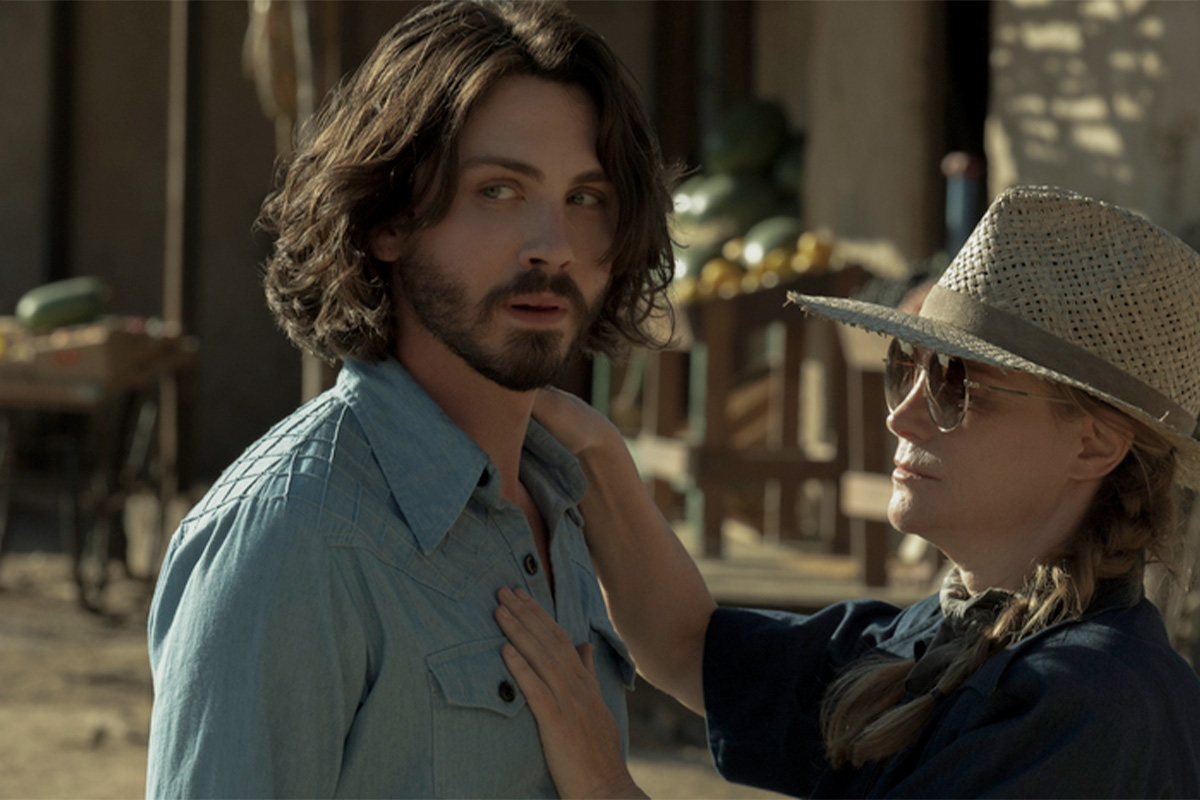
One final question: the end of “Hunters” is a bit ambiguous as to whether Jonah retires or continues Nazi hunting. How did you interpret it?
I interpret it as one way that the showrunners and Amazon are leaving room for more, potentially. In terms of when we were executing it, I think there was always the conversation that [the show] could go on. But even though it has a pretty definitive ending, from a character standpoint, I just think [the final scene] recognizes that [the story] doesn’t end there — an idea doesn’t end with a person being criminally sentenced.
The Nazis — people who hate others and hate Jews in particular, whatever you want to call them — they’re still around, and it should be somebody’s job to make sure that they don’t come to power again. So I thought it was a continuation of that idea in the show, that a fictional character like Jonah would still be there to protect the innocent.
